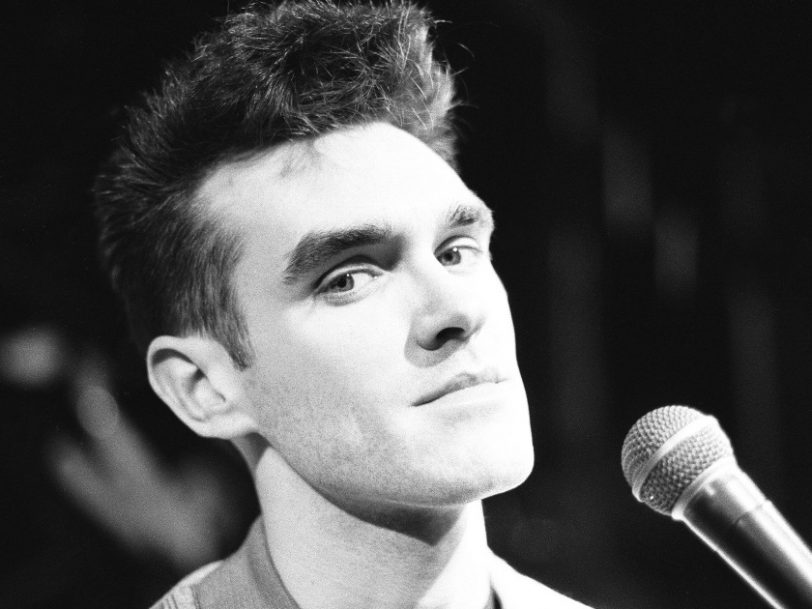It’s fair to suggest that most contemporaneous fans of The Smiths vividly recall the moment their heroes announced their split, in the late summer of 1987. Instigated by guitarist Johnny Marr’s initial decision to quit the group, The Smiths’ demise sent shockwaves through the music scene and united British music fans in a collective grief not seen since Paul Weller disbanded The Jam in 1982. However, in the same way that Weller soon re-established himself with The Style Council, Morrissey rapidly re-emerged with Viva Hate: a dynamic solo debut album which immediately appeased with his ardent fan base.
Listen to ‘Viva Hate’ here.
“I love what you sent me. I’m going to make a solo record”
Topping the UK charts, Viva Hate granted Morrissey a dream start to his solo career, but the idea of him pulling off such a coup was by no means a given. As his former band’s primary sonic architect, Johnny Marr was well-placed to accept high-profile post-Smiths offers of work from The The, Talking Heads and Kirsty MacColl, but while Morrissey was a stellar lyricist and indie-pop’s most iconic figure, he now needed new musical collaborators.
Exploratory sessions aimed at creating a putative Smiths Mk II with bassist Andy Rourke, drummer Mike Joyce and Easterhouse guitarist Ivor Perry foundered. However, another insider from The Smiths’ camp provided Morrissey with the impetus he needed to go solo.
“I’d been working on these four-track demos at home, just for my own pleasure,” producer Stephen Street told Mojo in 2003. “I’d sent Morrissey a tape of these, saying, ‘Please don’t think I’m being presumptuous, you probably won’t like these, but if there’s anything you think could be turned into a B-side for any singles off [The Smiths’ final album] Strangeways…’
“I then got married and went on honeymoon,” Street continued. “I came back to find a postcard from Morrissey, saying, ‘I love what you sent me. I’m going to make a solo record, are you interested?’ Of course I was interested!”
“I’d wanted to work with Morrissey for a long time”
Morrissey initially considered recalling Andy Rourke and Mike Joyce for the Viva Hate sessions, but as Street later told Super Deluxe Edition, “I guess he thought that for it to be truly regarded as a Morrissey solo record, he’d have to make a break from them.”
The ex-Smiths partners in rhythm returned to play on later Morrissey solo singles The Last Of The Famous International Playboys and Interesting Drug, but for Viva Hate, Stephen Street himself played bass alongside ex-Bucks Fizz session drummer Andrew Paresi and guitarist Vini Reilly, best known as the mainstay of Factory Records act The Durutti Column. The latter was particularly intrigued by the prospect of making the record.




